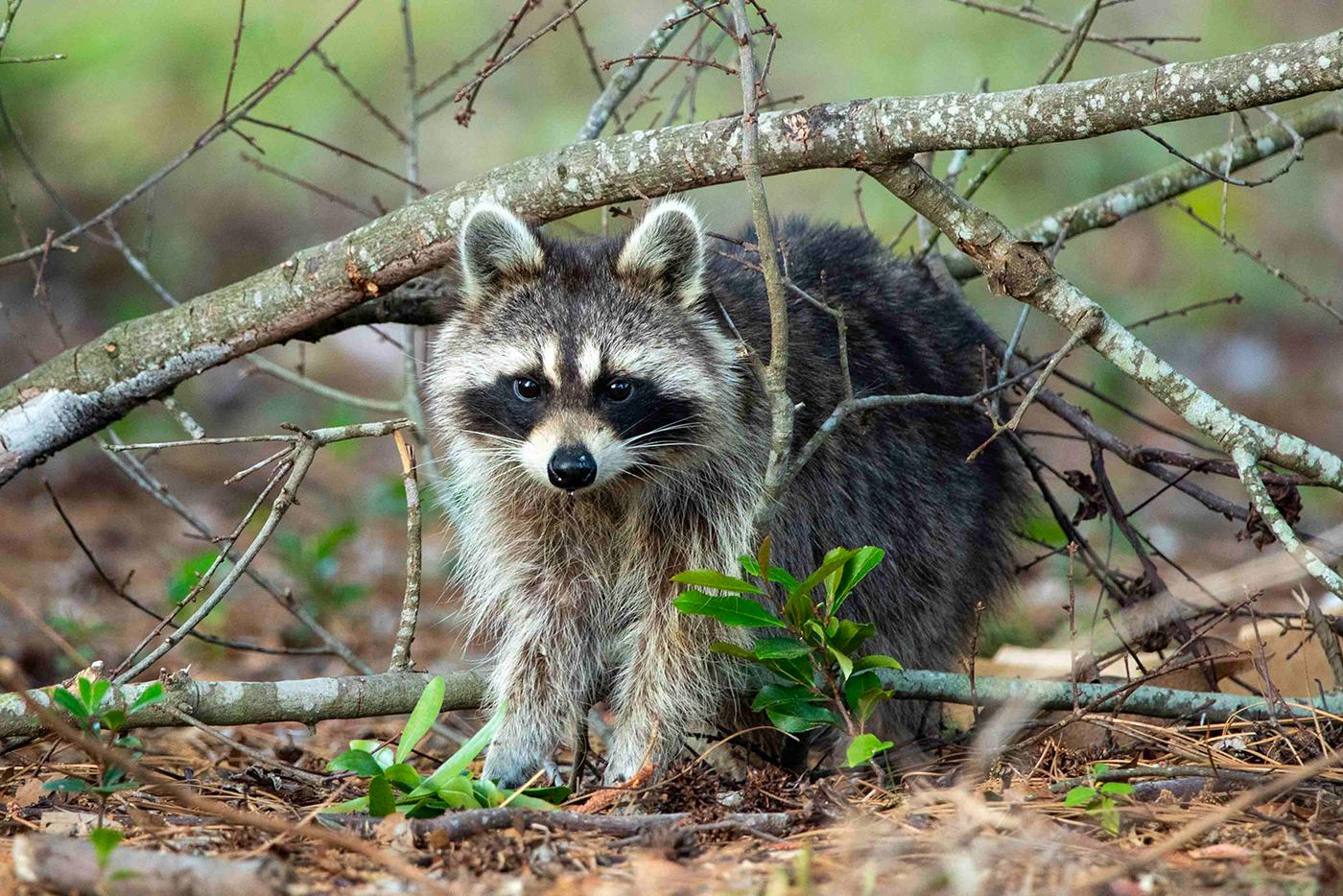As of Nov. 13, 2025, the Oral Rabies Vaccination Program bait distribution over western NC has been postponed to spring 2026. NCDHHS will provide updates as they become available in the coming months.
Starting mid-October, wildlife officials will be dropping rabies vaccine baits in western North Carolina to help protect people, pets and wildlife from rabies.
NCDHHS is partnering with the U.S. Department of Agriculture (USDA) on this effort.
Where and when baits will be dropped
- By hand in the Asheville area: Oct. 14-16, 2025
- By plane beginning Oct. 16, 2025, in these counties: Ashe, Avery, Buncombe, Cherokee, Clay, Graham, Haywood, Henderson, Jackson, Macon, Madison, Mitchell, Swain, Transylvania, Watauga and Yancey
The program has been in place since the 1990s to stop raccoon rabies from spreading farther west into areas that don’t currently have it.
What the baits look like
The baits are about the size of a matchbox and coated with fishmeal to attract raccoons. Inside is a small packet of oral rabies vaccine.
When a raccoon bites into the bait, the packet breaks and the vaccine goes into the animal’s mouth. This teaches the animal’s body to fight off rabies.
The baits will not harm people, pets or other animals if touched or eaten. But you may notice a strong fishy smell.
What to do if you or your pet finds a bait
- Leave it where it is unless it’s in your yard, driveway or somewhere raccoons won’t likely find it. In that case, move it to a wooded or brushy area using gloves or a towel.
- Do not try to take a bait out of your pet’s mouth. Eating a few baits will not harm pets, but it could upset their stomach.
- Wash your hands with soap and water if you touch a bait, especially if the packet inside has broken.
- Teach children not to touch the baits. If someone swallows a bait packet, call your local health department or the number on the bait: 1-877-722-6725.
- Throw away damaged baits by placing them in a bag (wear gloves) and putting them in the trash.
To date, NCDHHS has never received a report of a person swallowing a bait packet.
Why this matters
Rabies is a deadly disease that can spread from wild animals to pets and people. In North Carolina, rabies is most common in raccoons but skunks, foxes and bats can also carry it.
In 2024, more than 4,000 animals were tested for rabies in the state, and about 6% were positive. Once symptoms appear, rabies is almost always fatal in mammals — including humans. That’s why prevention is so important.
Protecting your pets
The oral rabies vaccine is only for wildlife, not pets. The best way to protect your pets is to keep their rabies shots up to date.
In North Carolina, state law requires all dogs, cats and ferrets to be vaccinated by 4 months of age and regularly after that. Talk to your veterinarian to make sure your pets are protected.
What happens next
Bait distribution is expected to wrap up by late October depending on weather. After that, wildlife officials will continue to monitor raccoons and track any rabies cases in the area.
Learn more about the oral rabies vaccine program:
Related press release: Annual Wildlife Oral Rabies Vaccination Program Begins Mid-October to Help Protect North Carolinians and Their Pets

